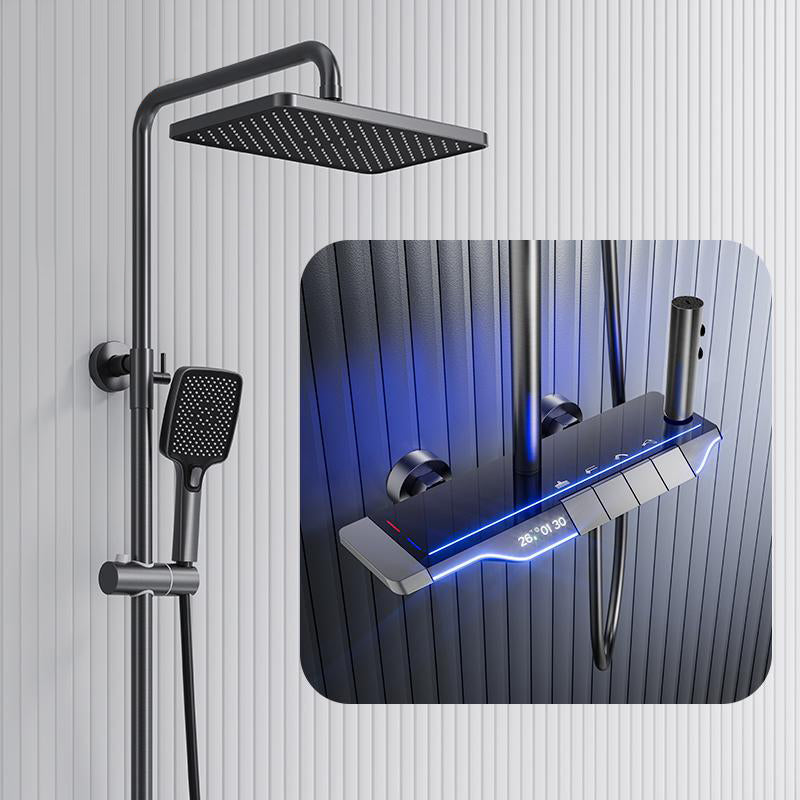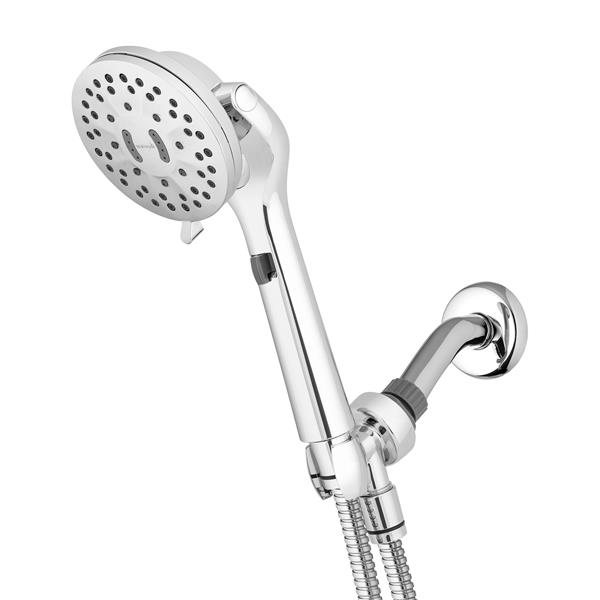The shower system is one of the most important elements when designing a bathroom. This not only enhances the aesthetic appeal of your bathroom, but also improves your everyday shower experience. With a plethora of options available, understanding the different types of shower systems can help you make an informed decision that best suits your needs.
Considerations When Buying a Shower System
When choosing a shower system, consider the type you want. Assess the space available in your bathroom, as larger systems may not fit in smaller areas. Check your plumbing’s water pressure, especially for rainfall or multi-functional showers.
Think about ease of installation — can you do it yourself, or will you need a professional? Set a budget, as prices vary significantly between traditional and advanced systems, and consider the style to match your bathroom’s aesthetic.
Most common types of shower systems
Traditional shower system:
Traditional shower systems are the most common type found in homes. They typically consist of a single showerhead mounted on the wall, connected to a hot and cold water supply. These systems are straightforward and easy to use, making them a popular choice for many homeowners.
Among the advantages, simplicity stands out, as they are easy to install and maintain, and they are cost-effective, generally being more affordable than other types of shower systems. Additionally, they offer a variety of styles and finishes that can match any bathroom decor.
However, they also have disadvantages, such as limited features, as they typically provide basic functionality without advanced options like multiple spray settings.

Multi-Function Shower Systems:
Multi-function shower systems offer a more luxurious showering experience. These systems come with multiple showerheads or body sprays, allowing users to customize their shower experience. You can choose from various spray patterns, such as rain, massage, or mist.
One significant advantage is customization, allowing users to tailor their shower experience to their preferences. They also provide relaxation, creating a spa-like atmosphere at home, and versatility, making them ideal for families with differing preferences.
On the downside, they come with a higher cost, being more expensive than traditional systems, and their installation can be complex, potentially requiring additional plumbing work.

Digital Shower Systems:
Digital shower systems represent the latest technology in shower design. These systems allow you to control water temperature, flow rate, and even lighting through a digital interface. Some models can be programmed to remember your preferred settings.
One key advantage is precision control, which allows users to easily set and maintain their desired temperature. They are also user-friendly, with intuitive controls that make them simple for anyone to operate. Furthermore, some systems come with advanced features, such as remote control via smartphone apps.
However, they also have disadvantages, including cost, as they are typically the most expensive option, and dependency on power, which can be a concern during power outages.

Shower Panels:
Shower panels are sleek, modern units that combine multiple features into one compact design. These panels often include multiple showerheads, body jets, and controls for temperature and flow. They can be installed directly onto your existing shower wall, making them a great option for renovations.
This system saves space, making them ideal for small bathrooms. They also provide an all-in-one solution, combining various features into a single unit, and contribute a modern aesthetic, adding a contemporary look to your bathroom.
However, installation is difficult and may require professional help, and customization is limited as some models may not allow for extensive personal adjustments.

Rain Shower Systems:
Rain shower systems are designed to mimic the gentle, soothing sensation of rain. These systems typically feature a large, overhead showerhead that distributes water evenly across your body. They can be installed as a standalone unit or combined with other shower types.
A significant advantage is the relaxing experience they provide, creating a calming and enjoyable shower atmosphere. They also feature a stylish design, adding a touch of luxury to your bathroom, and offer excellent water coverage for a full-body experience. On the downside, they may require higher water pressure for optimal performance, and limited adjustability can be an issue, as a fixed position may not suit everyone’s preferences.

Handheld Shower Systems:
Handheld shower systems feature a detachable showerhead that can be easily maneuvered. This type of system is particularly useful for bathing children or pets, as well as for cleaning the shower area itself. Handheld showers can be mounted on a wall bracket or used as a handheld unit.
Ideal for a variety of tasks from showering to cleaning. Easy to use and adjust. Ideal for people with mobility issues. However, it may not provide the same level of coverage as fixed shower heads and the hose may become tangled or uncomfortable.

Conclusion
Choosing the right shower system is a crucial aspect of bathroom design that can significantly impact your daily routine. From traditional systems to high-tech digital options, there’s a shower system for every preference and budget. By understanding the various types of shower systems available, you can select one that not only meets your functional needs but also enhances your overall shower experience.
If you liked our article and found it useful, I invite you to read our article on drinking water so that you can have a broader understanding of this type of potable water systems.



0 Comments